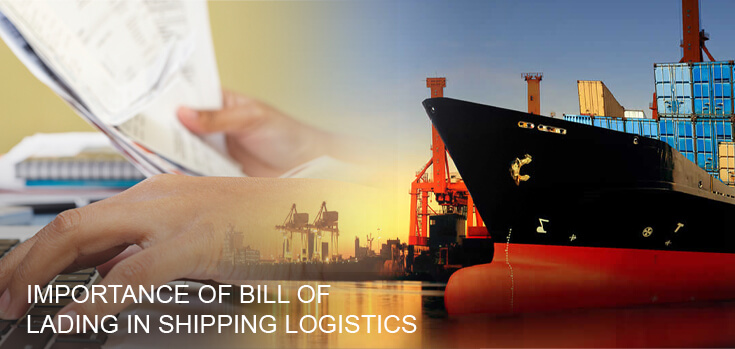Blog

Importance of Bill of Lading in Shipping Logistics
The BOL, preferably known as ‘bill of lading’ is an important document in the shipping logistics sector. Managing the bill of lading document has become a tiresome and constraint-involving process in the past few years. This has led to the outsourcing of the ocean bill of lading services by the shipping logistics industries.
With the extensive outsourcing process, there has been a great inclination towards the emergence of logistics outsourcing companies that are well-specialized in ocean bill of lading processing and logistics BPO services.
The BOL is a critical document involved in the export and import trade executed under the shipping mode. The document acts as evidence between the shipper and carrier, or the freight owner, so as to execute the process of freight transportation according to the contract stated between the buyer and seller.
The BOL document has paramount importance in the arena of International Trade. BOL occupies the backbone of developing ‘Letters of Credit’, wherein the bank of the buyer pays a small portion of the value of goods to the seller on the pretext that the goods serve the purpose and therefore, the consignment is been shipped. These procedures form an integral part of the BOL and hence, the bill of lading is quite significant in the shipping logistics.
The concept of ‘Bill of Lading’ dates back to the Roman era wherein the receipts is issued as a proof of cargo abroad the ship. With a rise in the trade and commerce during the medieval times, there emerged a need for a document which could be negotiated according to the goods that were traded. It slowly evolved into the contemporary BOL simultaneously with the insurance policy and bill of exchange.
- Acts as a receipt for shipped goods – It includes every possible information regarding the shipment such as weight, quantity, number of pieces/packages, and the noticeable status of the goods.
- Acts as a document of title – Bill of lading acts as a title document which can be transferred through an endorsement even while the consignment is in the freight process. It facilitates the receiver to fetch the possession when the ship docks.
- Acts as confirmation of carriage – BOL is evidence of an existing contract for delivering goods via sea transportation and it should not be connected with the contract between the buyer and seller in any other slightest manner.
- Significant information – The bill of lading encircles and lists out the following details:
- Description of the goods
- Count of goods
- The exact weight of the goods
- Identifying the pickup place
- Date of export
These include numerous procedures for the implementation of the ocean bill of lading processing and other logistics BPO services. But, the involvement of an established offshore logistics outsourcing company can ease the process with guaranteed and effectual solutions such as digitizing and uploading the scanned copy of BOL, documentation, data extraction, and scrapping, auditing, and approving the format.
Fri Jun 14 2019